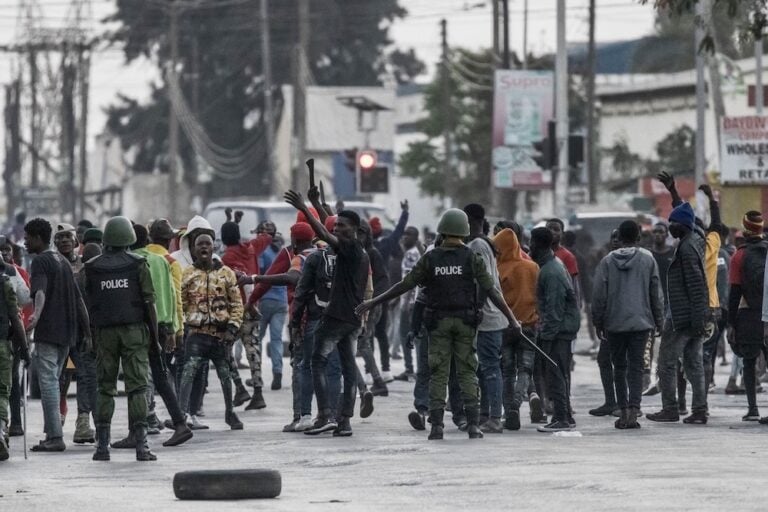(MISA/IFEX) – On 2 December 1997, detained writer and journalist Frederick Mwanza appeared before the High Court in Lusaka, where he was served with a presidential detention order allowing the police to hold him indefinitely under the state of emergency currently in force. The police detention order under which Mwanza was arrested had been revoked. […]
(MISA/IFEX) – On 2 December 1997, detained writer and journalist
Frederick Mwanza appeared before the High Court in Lusaka, where
he was served with a presidential detention order allowing the
police to hold him indefinitely under the state of emergency
currently in force. The police detention order under which Mwanza
was arrested had been revoked.
**Updates IFEX alert 27 November 1997**
Mwanza had applied for a writ of habeas corpus challenging the
government to show cause why he should not be released from jail.
Background Information
Mwanza, who has in the past written several newspaper articles
critical of government policies, was detained on 14 November
under the Preservation of Public Security Act in connection with
the failed coup of 28 October. Authorities allege that Mwanza was
present at a meeting finalising the coup plot against the
government of President Frederick Chiluba. While in prison,
Mwanza has been questioned about his writings (see IFEX alert).
that this report underlines “the crucial and
hazardous role journalists play in support of democracy.” In
response to this increase in violence against journalists, the
IFJ has drafted an international code of conduct for media
workers and organisations in order to guard against such danger.
Aidan White, the IFJ General Secretary, commented that though “we
cannot guarantee the lives of journalists against determined,
brutal and ruthless killers…journalists and media organisations
can do more to improve journalists’ conditions and to eliminate
unnecessary risk-taking.” “Whether covering corrupt local
politicians, exposing the drugs underworld, or simply reporting
on the movement for peace,” he added, “these journalists put
their lives on the line for decent, professional and ethical
journalism.” As he put it: “the deaths are the most painful
evidence of a trend of intimidation which has resulted in
hundreds of journalists beaten up, detained without trial, or
generally harassed. Journalism remains a most dangerous
profession [and though] in recent years we have seen the death
toll fall as the number of war zones has diminished…there is
still a hard-core of cases which show that investigative
journalists are the number one target.” White also mentioned that
“next year is the 50th anniversary of the signing of the
Universal Declaration of Human Rights and we plan to mark the
event with a solidarity memorial to our colleagues in Latin
America who are in the front-line of world journalism’s fight for
press freedom.”
For further information, contact Cailin Mackenzie at the IFJ, Rue
Royale, 266, B-1210 Brussels, Belgium , tel: +322 223 2265 or
+322
219 7780, fax: +322 219 2976, e-mail:
ifj.safety@pophost.eunet.be,
Internet: http://www.ifj.org/


